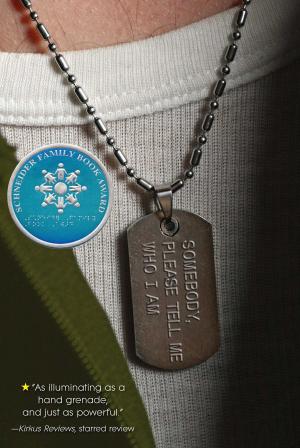Brotherhood of Heroes
The Marines at Peleliu, 1944 -- The Bloodiest Battle of the Pacific War
Nonfiction, History, Military, World War II, Americas, United States, Fiction & Literature| Author: | Bill Sloan | ISBN: | 9780743284608 |
| Publisher: | Simon & Schuster | Publication: | May 9, 2005 |
| Imprint: | Simon & Schuster | Language: | English |
| Author: | Bill Sloan |
| ISBN: | 9780743284608 |
| Publisher: | Simon & Schuster |
| Publication: | May 9, 2005 |
| Imprint: | Simon & Schuster |
| Language: | English |
A Band of Brothers for the Pacific, this is the gut-wrenching but ultimately triumphant story of the Marines' most ferocious -- yet largely forgotten -- battle of World War II.
Between September 15 and October 15, 1944, the First Marine Division suffered more than 6,500 casualties fighting on a hellish little coral island in the Pacific. Peleliu was the scene of one of the most savage no-quarter struggles of modern times, one that has been all but forgotten -- until now. Drawing on extensive interviews with Marine veterans, Bill Sloan follows a small group of young Americans through this incredibly vicious campaign and rescues their heroism on Peleliu from obscurity.
Misled by faulty intelligence, the 9,000 Marine infantrymen who landed on Peleliu's beaches under withering enemy fire found themselves facing 11,000 Japanese embedded in an intricate network of caves and underground fortifications unrivaled in the history of warfare. At the heart of the Japanese defensive system was a maze of sheer cliffs and deep ravines known collectively as the Umurbrogol plateau. Endless strings of ridges bristled with concealed artillery, mortars, machine guns, and riflemen, making every inch of contested ground a potential death trap for Marines. Making matters worse, Japanese soldiers had been told by their commanders that they were to hold Peleliu at any cost in a suicidal defense of the island.
Sloan's gripping narrative seamlessly weaves together the experiences of the men who were there, producing a vivid and unflinching tableau of the twenty-four-hour-a-day nightmare of Peleliu -- a melee of nonstop infantry attacks, ferocious hand-to-hand fighting, night assaults, and exhausting forced marches in temperatures that topped 115 degrees. With casualties in some infantry units averaging more than sixty percent, Peleliu ranks with the bloodiest battles in the Corps' history. Exemplifying these staggering losses was K Company, Third Battalion, Fifth Marine Regiment (K/3/5), on whose gallant officers and enlisted men the narrative focuses from the initial assault on the beaches to the horrific struggle for the Umurbrogol's crags and crevices.
Surprisingly, Peleliu received little public notice back in the States even as it was being fought and was virtually forgotten after the war, despite elements of controversy that are still debated by military strategists today. The invasion was ordered by Army General Douglas MacArthur to protect his flank as he launched his campaign to recapture the Philippines. But many experts believed then -- and still maintain today -- that the bloodshed at Peleliu was needless and that the island could have been safely bypassed.
In Brotherhood of Heroes, readers witness the brutal spectacle of Peleliu close-up through the eyes of the Marines who fought there. Their story will stand with Ghost Soldiers and Flags of Our Fathers as a modern classic in military history and a riveting read.
A Band of Brothers for the Pacific, this is the gut-wrenching but ultimately triumphant story of the Marines' most ferocious -- yet largely forgotten -- battle of World War II.
Between September 15 and October 15, 1944, the First Marine Division suffered more than 6,500 casualties fighting on a hellish little coral island in the Pacific. Peleliu was the scene of one of the most savage no-quarter struggles of modern times, one that has been all but forgotten -- until now. Drawing on extensive interviews with Marine veterans, Bill Sloan follows a small group of young Americans through this incredibly vicious campaign and rescues their heroism on Peleliu from obscurity.
Misled by faulty intelligence, the 9,000 Marine infantrymen who landed on Peleliu's beaches under withering enemy fire found themselves facing 11,000 Japanese embedded in an intricate network of caves and underground fortifications unrivaled in the history of warfare. At the heart of the Japanese defensive system was a maze of sheer cliffs and deep ravines known collectively as the Umurbrogol plateau. Endless strings of ridges bristled with concealed artillery, mortars, machine guns, and riflemen, making every inch of contested ground a potential death trap for Marines. Making matters worse, Japanese soldiers had been told by their commanders that they were to hold Peleliu at any cost in a suicidal defense of the island.
Sloan's gripping narrative seamlessly weaves together the experiences of the men who were there, producing a vivid and unflinching tableau of the twenty-four-hour-a-day nightmare of Peleliu -- a melee of nonstop infantry attacks, ferocious hand-to-hand fighting, night assaults, and exhausting forced marches in temperatures that topped 115 degrees. With casualties in some infantry units averaging more than sixty percent, Peleliu ranks with the bloodiest battles in the Corps' history. Exemplifying these staggering losses was K Company, Third Battalion, Fifth Marine Regiment (K/3/5), on whose gallant officers and enlisted men the narrative focuses from the initial assault on the beaches to the horrific struggle for the Umurbrogol's crags and crevices.
Surprisingly, Peleliu received little public notice back in the States even as it was being fought and was virtually forgotten after the war, despite elements of controversy that are still debated by military strategists today. The invasion was ordered by Army General Douglas MacArthur to protect his flank as he launched his campaign to recapture the Philippines. But many experts believed then -- and still maintain today -- that the bloodshed at Peleliu was needless and that the island could have been safely bypassed.
In Brotherhood of Heroes, readers witness the brutal spectacle of Peleliu close-up through the eyes of the Marines who fought there. Their story will stand with Ghost Soldiers and Flags of Our Fathers as a modern classic in military history and a riveting read.















